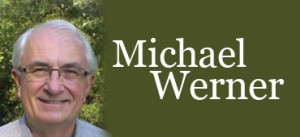Let’s Celebrate! (AKA How We Can Be of Service to the Secular Community)

I NEVER WANTED TO BE A HUMANIST CELEBRANT until John Forwalter died. John was president of our local humanist chapter, and when he died in 1996, his fundamentalist preacher son conducted a full-blown evangelical funeral service with no mention of John’s devotion to humanism. I and the other humanists there were incensed that his memory was so callously dismissed, especially when John’s son announced his father was going to hell for not accepting Jesus. It was a vengeful and unloving attempt to diminish the memory of his father to all of us who loved and respected him.
I knew then I had to do something to provide a service to other seculars for celebrating their births, their coming of age, their weddings, and their lives after they died. It has been an incredible joy and privilege to do so.
Humans in all cultures show a desire for ritual and for signifying important life events. These deeply meaningful times call for a public ceremony to capture such events in memory and meaning.
I’ve seen baby naming ceremonies where virtually everyone wept when they were called as a community to help in the growth of that beautiful child. These are public occasions to affirm that all of us have a responsibility for the care and nurturing of every child.
Because marriage deals with the most fundamental of human relationships, it must be regarded carefully. Couples generally take seriously the writing of their own marriage vows and really question what they are willing to affirm instead of reciting some boilerplate set of vows.
I once conducted a memorial service of a long-term humanist jokester, and after recounting his life story, I said, “Now, you all know Charlie wouldn’t want us pissing and moaning at his funeral, so let’s tell some of his corny jokes.” We did—and we alternated between laughing and crying. As usual after a humanist ceremony, people came up and told me that although I didn’t talk about God, it was the best service they had ever been to. It’s easy when we make the person the center of our concerns.
The Humanist Society has approximately 350 active humanist celebrants and officiants. I’m convinced that number will rise to over 10,000 in just a few years. With 25 percent of the population and 39 percent of millennials identifying as religious “nones” in the United States, the market is there. The explosion of celebrant services in Europe shows what can happen. In Ireland, humanist celebrants are now booked up a year in advance. There are more humanist weddings in Scotland than weddings conducted by the Church of Scotland. Norway offers formal humanist education for fifteen-year-olds culminating in a coming-of-age ceremony in which over 10,000 students a year participate: in a country of three million, that’s 17 percent of the “target market.”
The need for humanist celebrants is immediate and will grow. We must be there with support, education, and professionalization for this responsibility. We need visibility. In my case, I do it as a service to the community, but there are already many who are making a living as humanist celebrants. If you have the potential skills, maybe you should consider it.
Someone asked me, what is the purpose of a memorial service? Can’t we just bury or cremate a person and be done with it? My response is that death puts a hole in our hearts. Yet, the heart wants to be heard, and we require some measure of closure. And so we need to celebrate the life of that person as we meet to give some voice to our grief and to seek the comfort in one another’s presence.
Humanist wedding ceremonies can be performed in an infinite number of ways and need not be emotionally manipulative or emotionally sterile, instead speaking to each person’s dreams, passions, and affirmations of what is truly important to them. Affirmations embodying our highest values can have transformative power in our own lives and those around us.
We are called at times of major life events to come together because the heart demands it. I hope that we in the Humanist Society can help provide these important services to an increasingly secular country.
